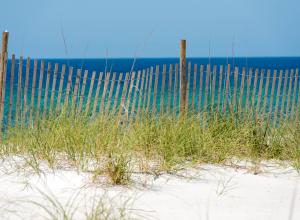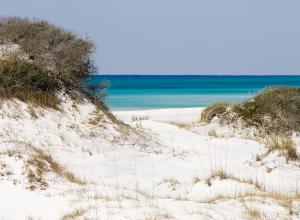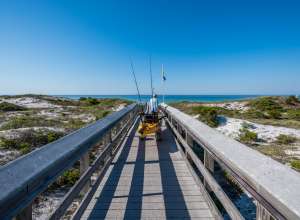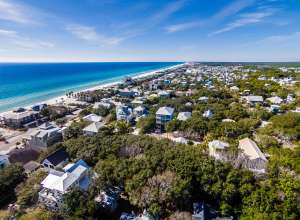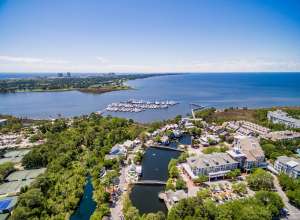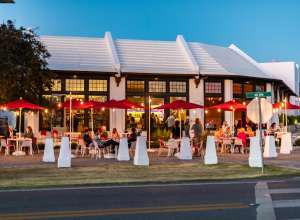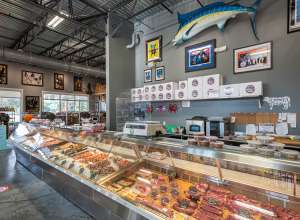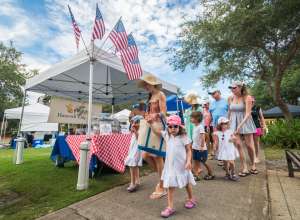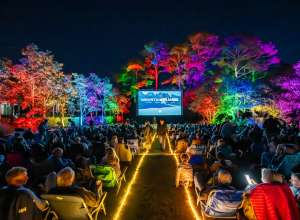Story
Oyster Recycling Program Creates Living Reefs from Trash
May 1, 2012 by Gwen Break

Oysters. You may love to eat them but hate to see them on the bottom of your boat. Regardless of your personal feelings about these rock-like crustaceans, The Choctawhatchee Basin Alliance believes they are important enough to collect the discarded shells from local restaurants and recycle them into reefs along area shorelines.
The reefs serve as neighborhoods where live oysters can establish themselves and thrive, rather on the bottom of someone’s boat or dock.
Oysters play a vital role in keeping area waterways healthy. According to Alison McDowel, senior grant manager at CBA, an adult oyster can filter as much as two and a half gallons of water per hour. Plus, the reefs offer a natural barrier to reduce erosion and trap stormwater runoff and pollutants.
Hence, CBA’s OYSTER recycling program, which began in November 2010. OYSTER is an acronym for Offer Your Shell To Enhance Restoration. Currently 10 area restaurants participate in the program.
The restaurants place their shucked oysters outside in blue 30-gallon recycling bins. CBA picks up the bins at each restaurant as often as three times a week, depending on the restaurants’ needs, and replaces used bins with clean ones.
“Recycling the oysters help build natural reefs and provide habitat for local fish and oysters that we serve, and help the community,” said Cortney Reeder, assistant general manager at Stinky’s Fish Camp, on CR 30A, one of the first restaurants to join the project.
Once the shell is picked up, it is placed in an outdoor drying area and left for at least six weeks to allow any harmful microorganisms to be destroyed by exposure to the environment. Once it has been cleansed by the rain and the sun, the shell is then ready to be used for restoration. The shells are shoveled into mesh bags weighing 20-30 pounds. The bags are used to construct a new oyster reef.
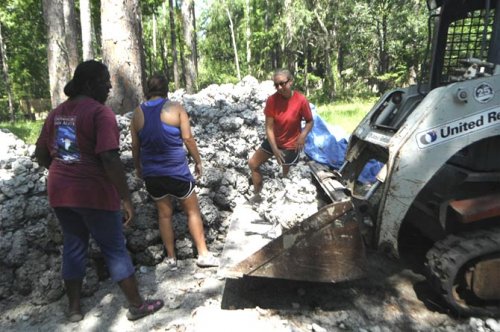
The reefs are the keystone of CBA’s Restoration Program and Living Shoreline Initiative, a shoreline management option that uses living plants, oyster shells, sand fill, or a combination of natural structures with riprap to protect property from erosion. All work is done by volunteers, from college students from around the country seeking to make a difference in the environment, to members of Panhandle Flyfishers, Choctawhatchee Audubon Society, Rotary Club, U.S. Air Force, Leadership Walton and private citizens. The OYSTER program was started by an AmeriCorps team.
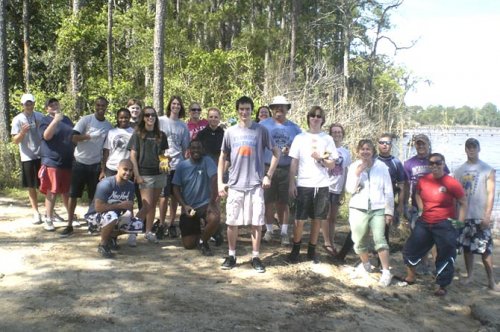
As of April 2012, CBA has built eight reefs in Apalachicola Bay, Okaloosa and Walton counties, including two in Point Washington and one at Cessna Park, both in South Walton. They are constructed 10-20 feet from the shoreline.
CBA began in 1996 and is affiliated with Northwest Florida State College. One of its shell-drying locations is located on the South Walton campus of the college. CBA’s mission is “sustaining and providing optimum utilization of the Choctawhatchee Basin watershed.” It is a non-profit organization that partners with a long list of government and commercial entities, as well as schools and private organizations, such as the Grayton Homeowners’ Association and the Seaside School. Monitoring, research, restoration, preservation and education are primary objectives of the CBA. The organization is financed through various grant programs and private donations.
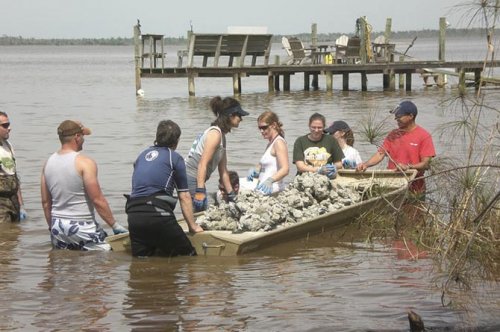
McDowel says while collecting the shells is “very labor intensive, the educational component (of the program) absolutely makes it worthwhile.” She has been with CBA for six years.
Anyone interested in volunteering or getting more information on the OYSTER program, can e-mail cba@nwfsc.edu or visit either CBA’s Facebook site, www.facebook.com/basinalliance, or its Web site, www.basinalliance.org.
Upcoming activities
-- April 27—Mattie Kelly Environmental Institute (MKEI) Annual Symposium: Comparing the Estuaries of Northwest Florida, Niceville Campus of NW FL State College, 8 a.m. to 3 p.m.
-- April 28—Mattie Kelly Environmental Institute (MKEI) Choctawhatchee Estuary Family Festival, Rocky Bayou State Park, Niceville, 11a.m. to 4 p.m.
Participating restaurants
The Back Porch
Stinky’s Fish Camp
Dewey Destin’s
The Crab Trap (Destin)
Goatfeathers
Buster’s
Kenny D’s
Hurricane Oyster Bar
Captain Dave’s
Bayou Bill’s Crab House
